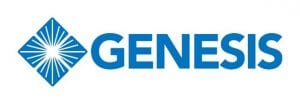Innovative Devices And Treatments Benefit Genesis Heart Patients
Genesis recognized National Heart Month in February by highlighting life-saving treatments now available to patients in the region with significant heart conditions.
Three treatment innovations available to Genesis heart patients are the Abiomed Impella pump; Inari blood clot removal devices; and the WATCHMAN™ implant.
 Here is more about each of the treatments and devices:
Here is more about each of the treatments and devices:
- Abiomed Impella Pump: The Abiomed Impella pump, called “The World’s Smallest Heart Pump” is a small device with a large impact. The Impella pump is designed to assist circulation during the cardiogenic shock condition caused by heart attack. The Impella pump has been found to be effective when the heart can’t pump enough blood to meet the body’s needs. Impella pumps are also implanted to enhance circulation during high-risk percutaneous coronary intervention (PCI) and stent placements.
“Our experience so far has been that Impella pumps are an important advancement for heart patients with high-risk conditions,’’ said Jon Robken, M.D., cardiologist with Cardiovascular Medicine P.C., and the Genesis heart program.
Heart disease is the leading cause of death in the U.S. for men and women.
“Heart programs throughout the world are always searching for the next advancement in technology or in technique to turn the scales more in the patient’s favor,’’ Robken added.
Abiomed’s results of clinical trials of the pump found a 79% survival rate and a majority of the surviving patients did not need further mechanical support or heart transplant.
- Inari FlowTriever and ClotTriever: The Inari FlowTriever and ClotTriever available at Genesis snare potentially life-threatening clots and remove them before the clots become loose and move to the heart or brain.
Blood thinners are often prescribed to prevent or break up clots but Genesis cardiologists are using the FDA-approved catheter devices to intervene in the dangerous clotting process.
 The FlowTriever is intended for removing lung clots (Pulmonary Embolism, or PE). ClotTriever is intended for removing leg clots (Deep Vein Thrombosis, or DVT).
The FlowTriever is intended for removing lung clots (Pulmonary Embolism, or PE). ClotTriever is intended for removing leg clots (Deep Vein Thrombosis, or DVT).
Both catheters are deployed in minimally invasive procedures, which have been found to reduce bleeding risk. The two catheters also can shorten hospitals stays.
“We can prevent these clots from becoming dangerous and life-threatening by removing them with these two catheter options,’’ Dr. Robken added.
- WATCHMAN™ implant procedures: The Genesis heart program also marked a milestone January 22 when the first WATCHMAN™ implant procedures were performed in the Cath Lab at Genesis Medical Center-East Rusholme Street.
WATCHMAN™ is a minimally invasive, one-time implant procedure designed to reduce the risk of strokes that originate in the hearts of patients with atrial fibrillation. The first WATCHMAN™ procedures at Genesis were performed by electrophysiologist and cardiologist Kelly Airey, M.D., FHRS, FACC, Cardiovascular Medicine, P.C.
The common treatment for clot prevention for patients with atrial fibrillation (A-Fib) is blood thinners. However, blood thinners can produce side effects such as bleeding.
WATCHMAN™ is an alternative for patients who are unable to tolerate long-term use of blood thinners.
WATCHMAN™ is implanted inside the left atrial appendage (LAA) of the heart. The device, made of metal alloy with a fabric cover, looks like a tiny umbrella. It expands when deployed and closes off the LAA to prevent any clots formed from entering the blood stream, where they can travel and cause stroke. During the weeks after the implant, heart tissue grows over the WATCHMAN™ and the LAA is permanently sealed.
“WATCHMAN™ is a device that has proven to be safe and 90 percent effective in stroke prevention without the side effects and inconvenience of use of blood thinners,” says Dr. Airey. “We have so many people that are in need of the WATCHMAN™ device.
“It’s a minimally invasive procedure where we go through the right groin into the femoral vein and up into the heart using a guidewire and catheters to deploy the device into the left atrial appendage. It’s a pretty quick procedure and you stay overnight and go home the next day.”
With more than 150,000 patients implanted globally, almost 20 years of clinical-trial and real-world experience — including over 10 clinical trials — WATCHMAN™ is the most studied LAA closure device. Data show that 92 percent of patients are able to discontinue their use of warfarin after 45 days, while 99 percent of patients discontinue warfarin use after one year.
Blair Foreman, M.D., FACC, electrophysiologist, Cardiovascular Medicine, P.C., says most patients are able to return to normal activity in a week or less.
“It really is a game-changer,” says Dr. Foreman, who also will be performing the WATCHMAN™ procedure at Genesis. “Nationwide, this device has been available for a time, and now our institution is offering it because we feel that for many, many people, there’s no other way to give them good protection from clots that form as a result of atrial fibrillation.”
- TAVR Milestone: Genesis also offers Transcatheter Aortic Valve Replacement (TAVR), a minimally invasive procedure to replace a narrowed aortic valve that fails to open properly. Genesis providers recently surpassed 500 TAVR procedures.
The Genesis Heart Institute has a team of top cardiologists, surgeons, vascular specialists and other medical professionals who combine their knowledge and expertise to provide well-rounded treatment. For more information, call (563) 421-3900.









